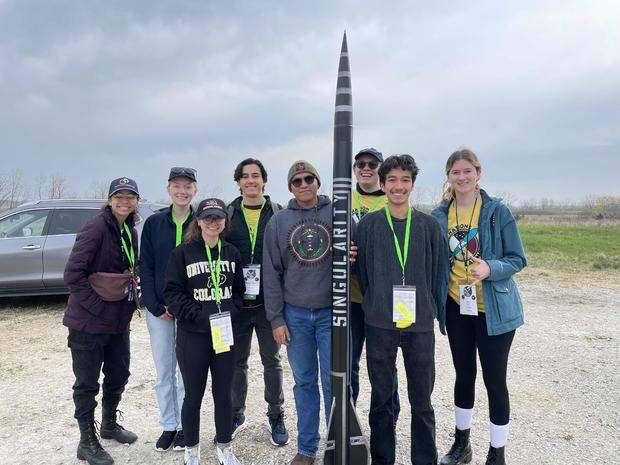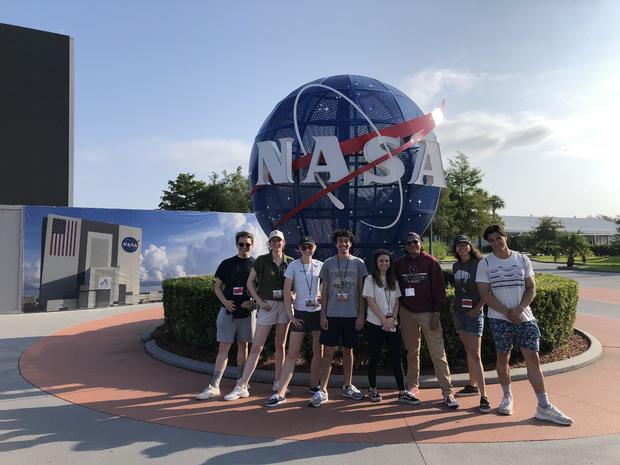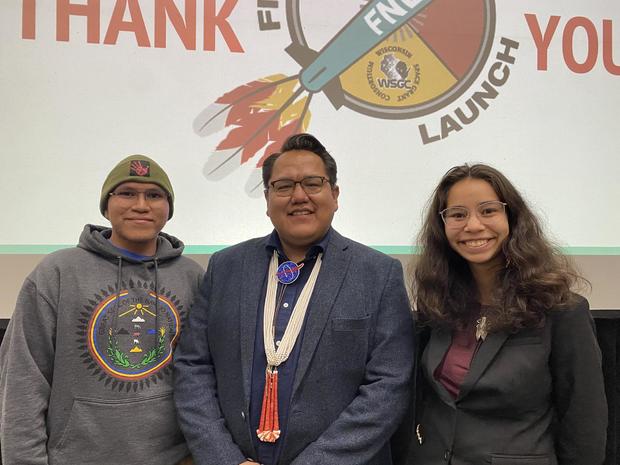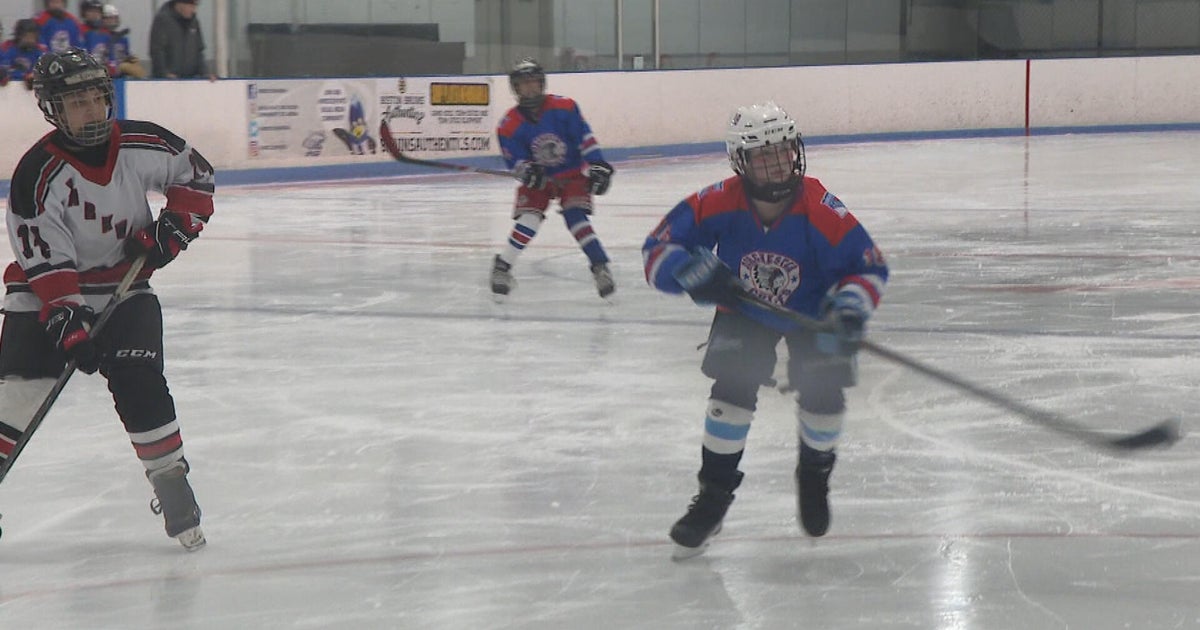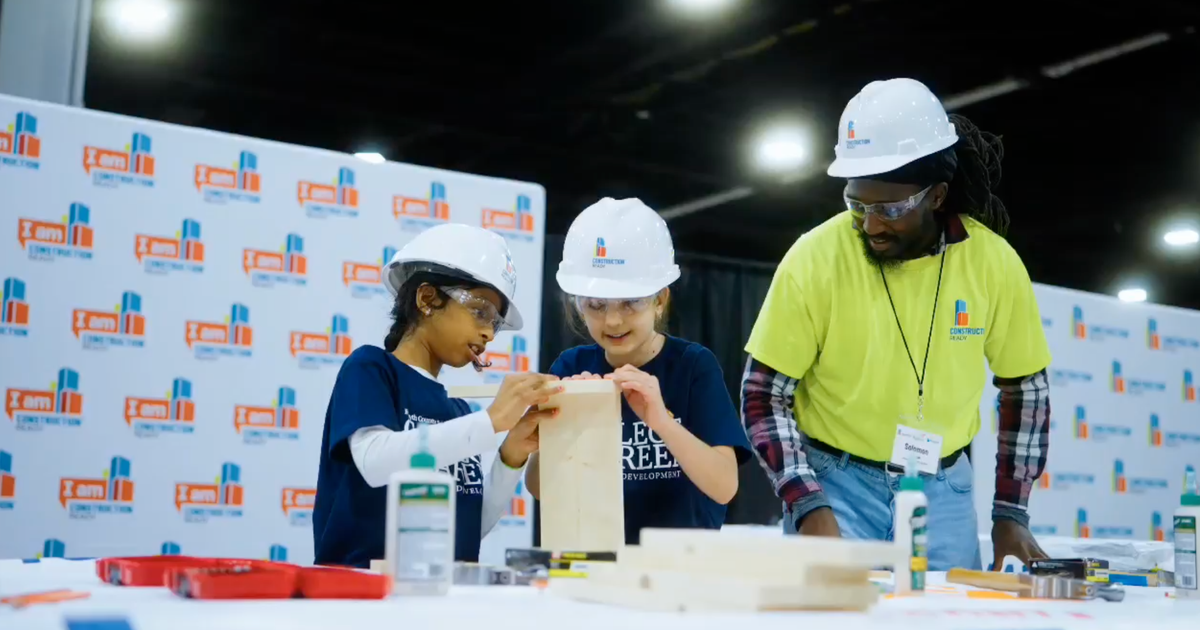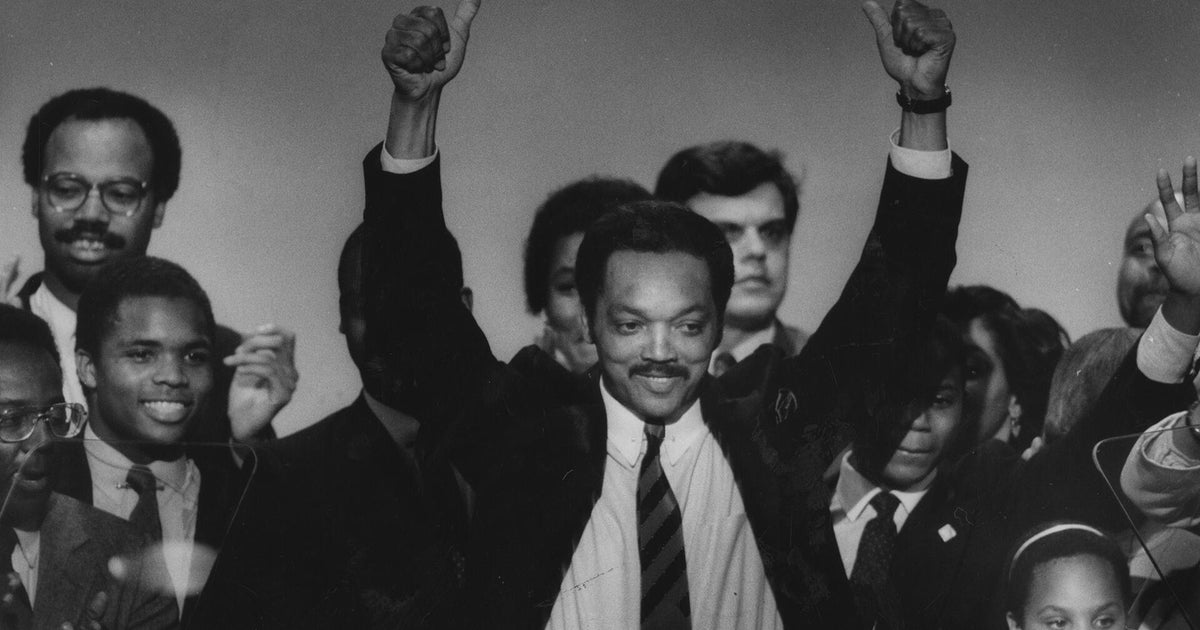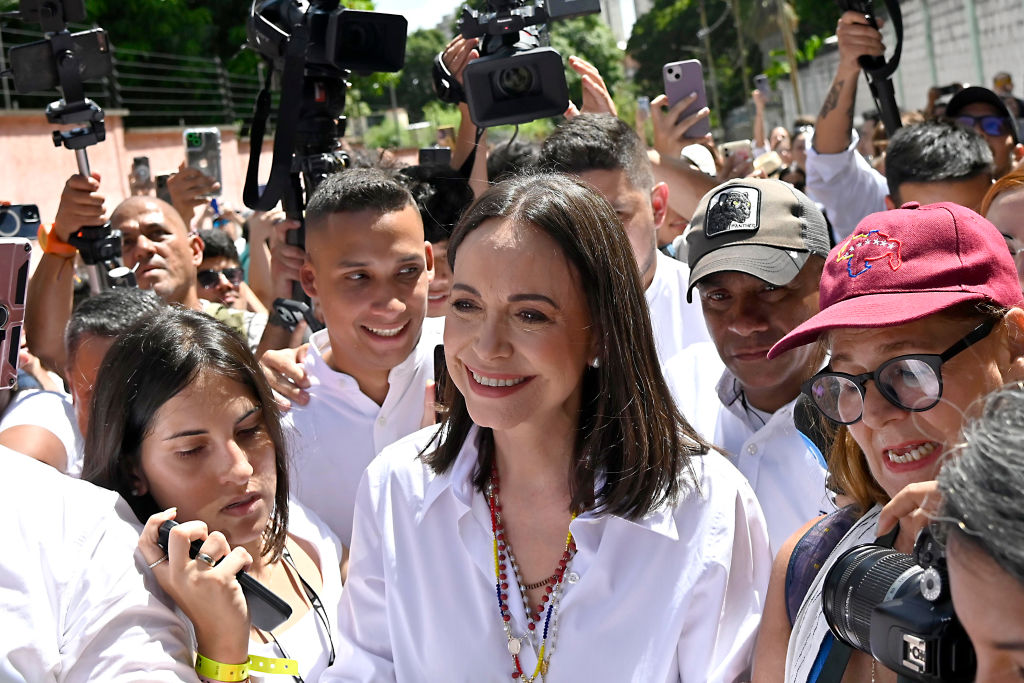A prize-winning rocket fuels dreams for Indigenous students at the University of Colorado
A group of Indigenous students at the University of Colorado Boulder recently launched a prize-winning rocket and earned a life-changing trip to the Kennedy Space Center in Florida.
The students who are majoring in engineering and other STEM fields used their creativity, imagination and science chops to score the win.
"So the challenge was to craft a lightweight rocket," said Nazhoné Morgan.
She and others on the team are members of the University of Colorado Boulder's American Indian Science and Engineering Society.
"What we did structurally was we 3D printed the fins the nose cone and part of the avionics bay right in the middle here," said Morgan.
Their rocket -- called "Singularity" -- won this year's First Nations Launch. They competed against students from 21 colleges in the U.S. and Canada.
"Once I found out we won, I was like, 'this is pretty neat. This is really huge in my experience,'" said Alfredo Bitsoi, a member of the Navajo nation.
It's a boost that's far-reaching for these aspiring engineers and the people who look up to them.
"It kind of opens up your mind to what's possible and the limits that you can push. So that's an experience that I'll always take with me for sure," said Evie Clarke, president of CU Boulder's AISES chapter.
The prize was a trip to watch the launch of NASA's SpaceX Crew-7: four astronauts representing four countries heading to the International Space Station.
"Being able to see a launch is one of the coolest experiences I've had," added Clarke.
Bitsoi said, "I've always loved NASA, I've always wanted to work there, and being there in person was really life-changing for me. It's like 'wow' if I'm here, in the future I can be here again and I can encourage other people to be here. More people like me to be in this kind of field."
Students had the opportunity to interact with Indigenous leaders in aerospace.
"Aaron Yazzie who worked on the Mars Rover," Morgan said. Yazzie, from the Navajo nation, is a mechanical systems engineer at NASA's Jet Propulsion Laboratory. "And just seeing those people in these industries is very inspirational," Morgan added.
It's got Morgan thinking about a new trajectory.
"I'm looking into finding a career in embedded systems and avionics," she said.
Many Indigenous cultures attribute spiritual meaning to the stars and see the exploration of space as a way to advance their people.
"We do not look at it as a place to be colonized, but a place to be respected and a place to learn from," said Morgan.
"It brings our Indigenous people together because it encourages us to seek forward, seek something better and to look to the stars for innovation rather than being behind, dwindling," added Bitsoi.
They call themselves the CU Trailblazers and are already preparing for their next launch -- one they expect to reach even greater heights.
In addition to competing in a more daring "Mars Challenge" in 2024, the Indigenous students say they will work with Native American students in Denver Public Schools to provide workshops on rocketry and higher education.
